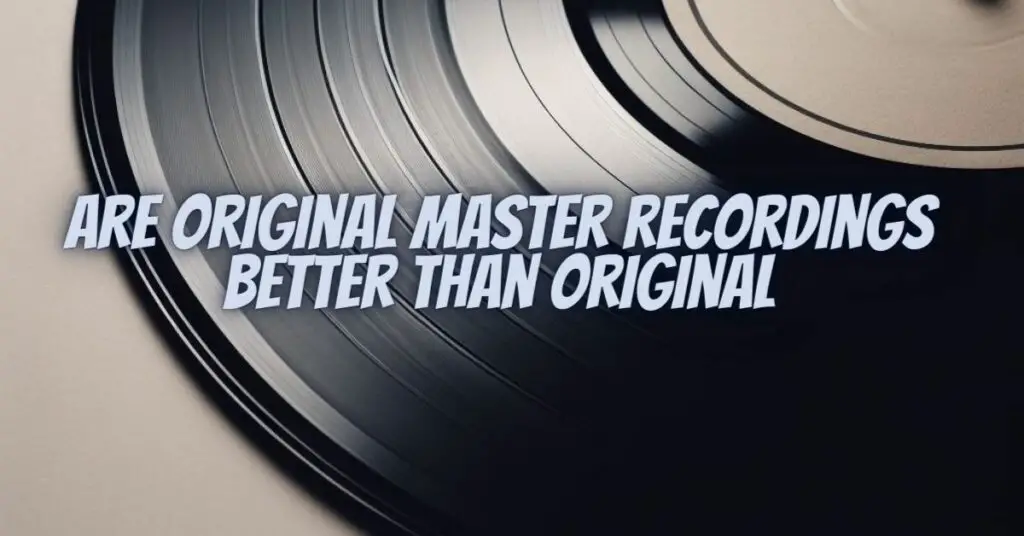In the world of audio fidelity, enthusiasts often engage in spirited discussions about the relative merits of original master recordings versus original releases. This debate raises important questions about sound quality, historical significance, and the listening experience. In this article, we will delve into the complexities of this topic and examine the factors that contribute to the ongoing debate.
Defining the Terms
Before exploring the debate, it’s crucial to clarify the terms used:
- Original Master Recording: This refers to the unaltered, high-quality recording made during the initial studio session, capturing the artist’s performance in its purest form. It serves as the foundation for all subsequent releases.
- Original Release: This represents the first version of a recording that was made available to the public. It may include vinyl records, CDs, or other formats, but it is derived from the original master recording.
The Case for Original Master Recordings
- Unaltered Purity: Original master recordings remain untouched by post-processing techniques applied to subsequent releases. This means they preserve the raw, unadulterated sound of the artist’s performance, offering a direct connection to the music as it was originally intended.
- Audiophile-Quality Sound: Audiophiles often prefer original master recordings due to their superior sound quality. These recordings avoid the compression, equalization, and dynamic range limitations that may affect later versions, resulting in a listening experience of unparalleled quality.
- Historical Significance: Original master recordings have intrinsic historical and cultural value. They document the artistic process, the state of recording technology at the time, and the creativity of the musicians involved. Collectors and enthusiasts treasure these recordings for their historical relevance.
The Case for Original Releases
- Authenticity: Original releases represent the music as it was introduced to the world. For many listeners, these versions hold sentimental value and authenticity, capturing the essence of the era when the music was originally enjoyed.
- Artistic Integrity: Some argue that the creative choices made during the original release, such as track sequencing and album cover art, contribute to the holistic experience of the music. These aspects may be altered or omitted in later releases.
- Accessibility: Original releases are often more accessible and affordable than original master recordings, which can be rare and costly. They allow a wider audience to enjoy the music in its original context.
The debate over whether original master recordings are superior to original releases is multifaceted and ultimately subjective. Personal preferences, listening goals, and the specific recording in question all play significant roles in shaping individual opinions.
Audiophiles and collectors are drawn to original master recordings for their pristine sound quality and historical significance. However, it is important to acknowledge that not all original master recordings are equal, and quality can vary based on recording techniques, equipment, and conditions at the time.
Original releases, on the other hand, provide authenticity, capturing the music as it was first presented to the world. They are often more accessible and hold a special place in the hearts of listeners who cherish the music in its original form.
Ultimately, the choice between original master recordings and original releases depends on the listener’s personal connection to the music, their appreciation for historical significance, and their desire for an authentic listening experience. Both versions offer unique insights into the evolution of recorded music, enriching our understanding and enjoyment of the art form.


